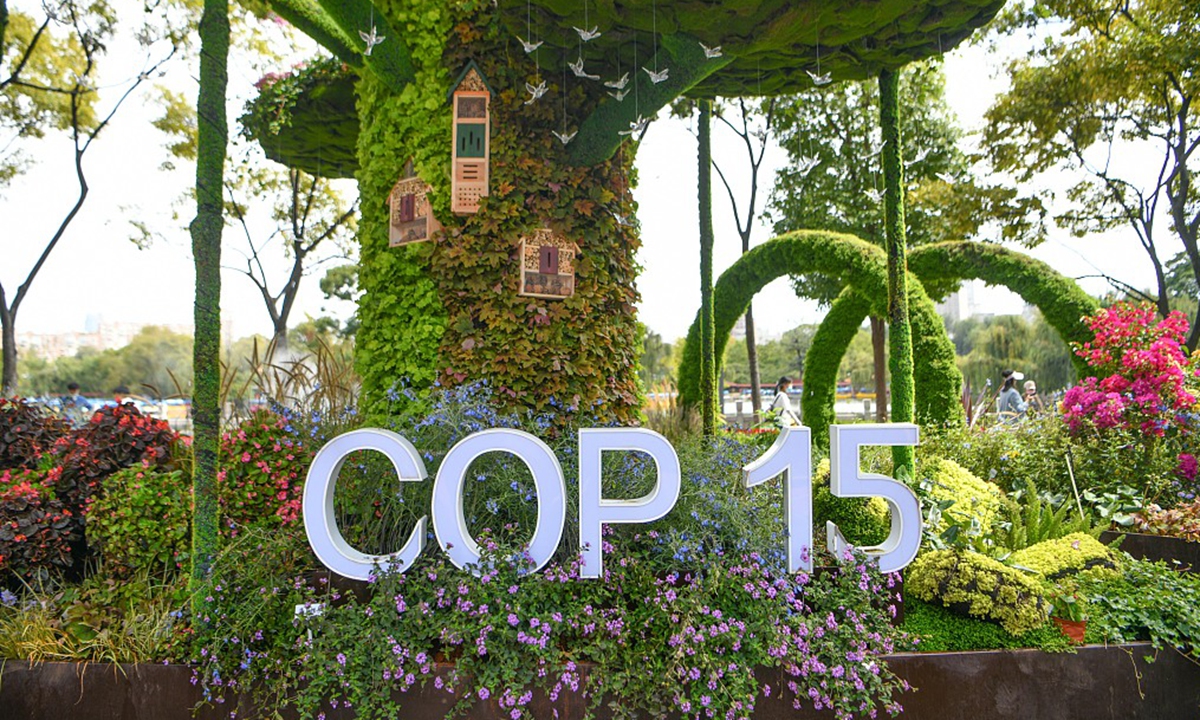
COP 15 Photo:VCG
COP15 president and China's minister of ecology and environment said on Saturday that he is optimistic on reaching a major deal to reverse the growing crisis of global biodiversity loss once the very few remaining problems are overcome.
“I’m quite optimistic on finishing the negotiations and making achievements on the post-2020 Global Biodiversity Framework (GBF),” said Huang Runqiu, president of the Conference of the Parties (COP15) to the UN Convention on Biological Diversity (CBD).
There are fewer and fewer hard nuts left but only individual questions in the negotiation process. Once breakthroughs are made on these issues, we can have a framework, Huang told reporters on Saturday in Montreal, Canada, after the conclusion of the ministerial-level negotiation of the UN biodiversity conference, which draw nearly 1,000 representatives, including almost 200 ministerial-level representatives, from 140 contracting parties and 60 international organizations.
Experts said it is the largest number of high-level delegates participating in the Conference, which shows the high importance the international community attaches to the biodiversity conservation.
Ma Jun, director of the Beijing-based Institute of Public and Environmental Affairs, told the Global Times on Sunday that Huang’s message that the international community is very close to reaching agreement is very positive, despite all kinds of divergences and difficulties.
This proves the efforts of China as chair of the conference, and proves that different countries and regions are still willing to make compromises and concessions to some extent for the common goal, Ma said.
Huang said the most challenging remaining divergences lie in the financial mechanisms, resource mobilization and the goals of the framework. “Targeting these three problems, we have invited minister-level officials from Rwanda, Chile, Egypt, Germany, Norway and Canada, and have set up three coordination working groups,” Huang said.
Huang said that with each group having two experienced and reputable ministers from a developing country and a developed country as the leaders, significant progress on key problems have been made in the past few days.
According to two senior officials from Rwanda and Germany who were appointed to deal with the issue of funding, all contracting parties agreed the input of $200 billion each year before 2030, including funds from international, domestic, public and private sources, and that it is not feasible to leave Montreal without a decision made on the funding issue.
Huang said the ministers all agreed that the last moment to reverse the loss of global biodiversity has come and an ambitious and balanced framework must be reached and implemented to put biodiversity on a path to recovery by 2030.
“It was such a great lesson and pity that the 'Aichi Targets' adopted at COP10 failed over the last decade. Let’s hope we’ll come to the new framework with actual implementation,” Ma said.


